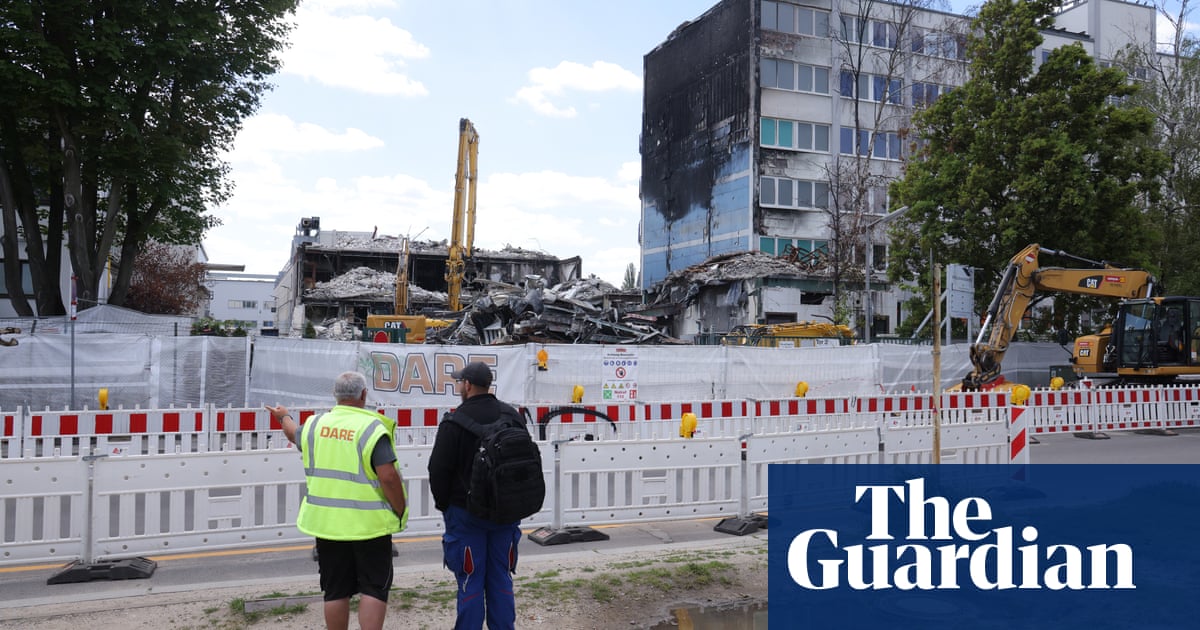A senior European diplomat said that up to 100 âsuspicious incidentsâ in Europe this year could be attributed to Russia, as western officials grapple with how to respond to suspected Russian sabotage attempts.
Speaking ahead of a meeting with Nato counterparts in Brussels, the Czech foreign minister, Jan Lipavský, stressed that Europe âneeds to send a strong signal to Moscow that this wonât be toleratedâ.
âThis year there were 500 suspicious incidents in Europe. Up to 100 of them can be attributed to Russian hybrid attacks, espionage, influence operations,â Lipavský told reporters.
The issue of Russian hybrid threats was one of the main topics discussed during the two-day meeting of the NATO alliance in Brussels, which concluded on Wednesday.
Nato secretary general Mark Rutte said that âboth Russia and China have tried to destabilise our countries and divide our societies with acts of sabotage, cyber-attacks, and energy blackmailâ
Rutte added that the block agreed on a set of measures to counter âRussiaâs hostile and cyber activities, including enhanced intelligence exchange, more exercises, better protection of critical infrastructure and improved cyber defence.
Speaking separately in Berlin on Wednesday, German Chancellor Olaf Scholz stated that his country faces a significant threat of sabotage from both Russia and China. He emphasized the need for the country to better prepare for attacks and become more resilient.
Over recent years, European nations have witnessed a spate of incidents â cyber-attacks, arson, incendiary devices, sabotage and even murder plots. The aim of such episodes, security officials believe, is to sow chaos, exacerbate social tensions among Ukraineâs allies and disrupt military supplies to Kyiv.
Concerns in Europe over potential Russian hybrid attacks have intensified following western approval for Ukraine to use US and British long-range missiles in strikes within Russia.
Rutte warned last month that Russiaâs âintensifying campaign of hybrid attacksâ highlighted the way in which Moscow was quickly shifting the frontline from Ukraine âto the Baltic region, to western Europe and even to the high northâ.
European intelligence services are studying a range of suspected Russian operations.
Sweden is leading the investigation into the suspected sabotage of two undersea cables in the Baltic Sea, with western officials suspecting that a vessel intentionally severed the cables by dragging an anchor along the seabed for more than 100 miles.
In the UK, a court is examining the case of a âsophisticatedâ UK-based spy ring that allegedly passed secrets to Russia over nearly three years, collecting intelligence on targets across Europe.
Police are also investigating whether Russia-linked spies posted incendiary devices â via the delivery firm DHL â around Europe, to Birmingham in the UK and Leipzig in Germany.
Arguably the most serious threat was an assassination plot targeting Armin Papperger, the CEO of the German defence company Rheinmetall, one of many European firms helping supply Ukraine.
after newsletter promotion
Germanyâs foreign intelligence chief, Bruno Kahl, said that Russiaâs acts of sabotage may eventually prompt Nato to consider invoking the allianceâs article 5 mutual defence clause.
The wide geographical scope and diverse nature of the threats pose a significant challenge for the west in mobilising resources and effectively countering Russian aggression.
One former senior European defence official said it was âpractically impossibleâ to fully confront Moscowâs escalating hybrid warfare. The former official, who recently left their position, said that for years the west underestimated Russiaâs hybrid activities, losing valuable time for intelligence sharing and scaling up defence capabilities.
Some countries are now compelled to rely on non-governmental agencies to safeguard their territories.
Last month, the Netherlands announced plans to temporarily enlist private shipping companies to bolster security in its portion of the North Sea.
The increase in Russian activity has come as the Kremlinâs spy apparatus recovered from the initial shock of 450 agents posing as diplomats being expelled from Europe in response to the invasion of Ukraine.
Without the traditional network of embassy-based spies, western officials believe that Russia has been forced to resort to riskier and less conventional methods, relying on criminals and others to carry out its dirty work.



